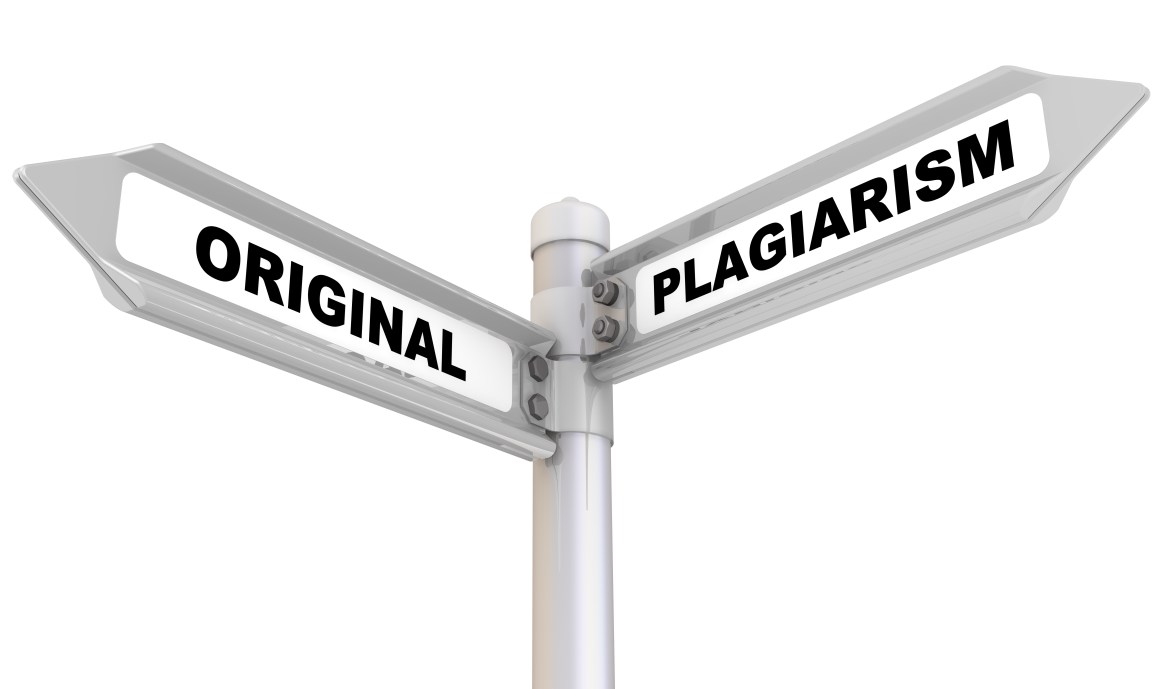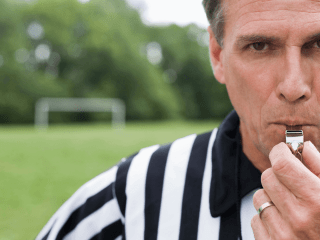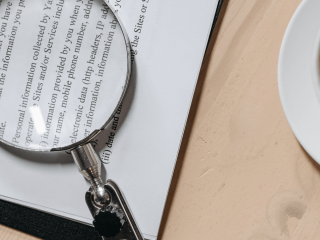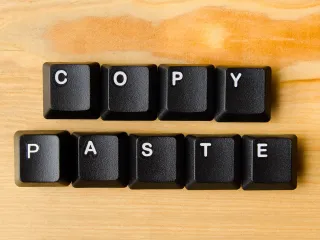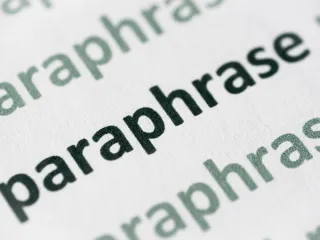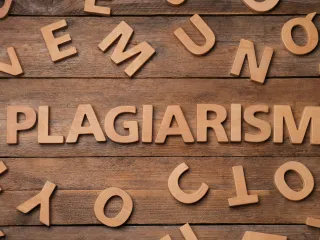There are several types of plagiarism, each with its meaning, and many people wonder, what is incremental plagiarism? This type of plagiarism is when a writer takes small pieces of someone else’s work and uses them in their own without proper attribution.
In other words, it involves copying or paraphrasing ideas, phrases, or sentences from an original source in increments, or small portions, rather than the entire work. As a type of plagiarism, incremental plagiarism is considered equally unethical as other forms of plagiarism, such as accidental plagiarism, self-plagiarism, and global plagiarism.
Plagiarism means using someone else’s work, ideas, or words as if they were your own without giving proper credit to the original author or source. Incremental plagiarism falls under this umbrella term and can have serious consequences, such as a failing grade, disciplinary action, or even legal action if the writer has infringed on someone’s copyright.
In this post, we will explore incremental plagiarism in more detail, discussing its definition and how it differs from other types. We will also provide examples of this plagiarism in real-life situations, like research papers and speeches, and discuss ways to avoid it.
By the end of this article, you will better understand the question of what is incremental plagiarism? In addition, we will share some ways to ensure that your work is original and ethical.
Incremental Plagiarism vs. Patchwork Plagiarism
Incremental plagiarism is a form of plagiarism quite similar to other types of plagiarism, like patchwork plagiarism and accidental plagiarism. However, there are some notable differences between these types that are important to understand when it comes to maintaining ethical principles in writing.
Patchwork plagiarism is another form of plagiarism that involves taking pieces from different sources word-for-word and stitching them together to create a new work without proper attribution. Unlike incremental plagiarism, which includes copying in small increments, patchwork plagiarism involves taking larger chunks of text from various sources and trying to pass them off as original work.
Accidental plagiarism, also known as unintentional plagiarism, means a writer uses someone else’s work without realizing it. This instance can happen when a writer forgets to put quotation marks around a direct quote or accidentally paraphrases too closely to the original source without giving proper credit. Unlike incremental plagiarism, which is a deliberate effort to copy without attribution, accidental plagiarism is typically a result of carelessness or lack of attention to detail.
While incremental plagiarism, patchwork plagiarism, and accidental plagiarism may differ in their methods, they all violate proper attribution and ethical principles. Writers must always strive to give appropriate credit to the original author and original source, and avoid plagiarism, both intentional and unintentional. In the case of incremental plagiarism, this means making sure to properly cite any ideas, phrases, or sentences from previous work.
Examples of Incremental Plagiarism
Incremental plagiarism is a significant offense, and unfortunately, it’s not uncommon for famous individuals to get caught up in this type of plagiarism. Let’s look at a few famous examples of individuals accused of committing this type of plagiarism.
Avril Lavigne
One example of incremental plagiarism is Avril Lavigne. In 2007, Lavigne was accused of copying a melody from the Rubinoos’ song “I Wanna Be Your Boyfriend” for her song “Girlfriend.”
Although “I Wanna Be Your Boyfriend” was published 41 years prior, citing it as an influence only came to light once “Girlfriend” was released and published. Musicologists argue that she modified elements from the former to give a different feel and tempo; however, many fans feel that this still amounts to incremental plagiarism.
Her case serves as an example for upcoming artists to correctly credit outside influences to not fall into similar disputes and accusations of plagiarism.
Melania Trump
Another example is Melania Trump, Donald Trump’s wife and the former First Lady of the United States. During the 2016 Republican National Convention, Trump gave a speech that contained several lines nearly identical to Michelle Obama’s speech from the 2008 Democratic National Convention. Trump’s speechwriter later took responsibility for the similarities and apologized.
Pharrell Williams and Robin Thicke
Pharrell Williams and Robin Thicke got accused of plagiarism in their hit song “Blurred Lines.” The estate of Marvin Gaye claimed that the song copied elements of Gaye’s song “Got to Give It Up.”
The families of both artists squared off in court against one another in a battle over copyright infringement that lasted for years. With so many strong arguments made on either side of the case, it was ultimately decided in favor of Marvin Gaye’s estate, resulting in the composition of Blurred Lines being deemed similar to the late artist’s work.
Although Williams and Thicke denied the accusations, they ultimately lost the lawsuit and were ordered to pay millions in damages.
Other Examples
Other notable examples of this plagiarism include Conan O’Brien, accused of copying jokes from other comedians, and Manny V. Pangilinan, a Filipino businessman accused of copying portions of a speech about ethics in public speaking from Oprah Winfrey.
Consequences of Incremental Plagiarism
Unfortunately, the consequences of this type of plagiarism can be just as severe as other forms of plagiarism.
If accused of incremental plagiarism, individuals can expect to face the same academic or professional consequences as those accused of other forms of plagiarism. These consequences can include a failing grade on a paper, disciplinary action from a school or employer, or even legal action.
In the case of copyright infringement, the original author or original source of the work can pursue legal action against the accused individual, resulting in fines or other penalties for the individual.
Aside from these consequences, accused individuals may also face name-calling and other criticisms from their peers or the public. This outcome can damage one’s personal and professional reputation and have long-lasting effects.
It’s important to remember that ethical listening and speaking involve respecting the intellectual property of others and giving proper credit where credit is due. As the consequences of plagiarism can get severe, avoiding abusive language and name-calling is essential in maintaining a civil discourse around plagiarism.
How to Avoid Incremental Plagiarism
Avoiding plagiarism, including incremental plagiarism, is crucial for maintaining academic and professional integrity. Incremental plagiarism, which involves copying ideas, phrases, or sentences from an original source in small increments, is a common form of plagiarism that can be difficult to detect.
There are several effective methods that individuals can use to ensure their work is original and free from plagiarism. They include:
Take Detailed Notes
Taking detailed notes is one of the best ways to avoid incremental plagiarism. When conducting research, write down the source of any information you come across and note any direct quotes or paraphrases you plan to use in your work.
By doing this, you’ll have a clear record of where your information came from and be able to give proper credit when needed. Additionally, taking detailed notes can help you better understand the material you’re working with and make it easier to write original material in your own words.
Write Original Material
Writing original material in your own words is another effective method for avoiding incremental plagiarism. Rather than copying and pasting information directly from a source, express the ideas in your own words. This practice will ensure that you’re not copying someone else’s work and that you know about the messages you are writing.
Paraphrasing can be a helpful tool for avoiding plagiarism but ensure that the paraphrased material gets expressed in your own words and is significantly different from the original source.
Cite All Sources
Accurately citing all sources is essential to avoiding incremental plagiarism. This action means providing proper attribution for any direct quotes or paraphrases you use and including a Works Cited or Bibliography page at the end of your work. Following the proper citation format, such as MLA or APA, will ensure that you’re giving proper credit to the original author or source.
It’s important to note that common knowledge or open expressions of ideas do not require citation, but if you’re unsure, it’s always best to err on the side of caution and include a citation.
Use a Plagiarism Checker
Using a plagiarism checker is another effective way to ensure that your work is original and free from plagiarism. Quetext’s plagiarism checker is a great option due to its deep search technology and integrated citation generator.
By using a plagiarism checker, you can rest assured that your work is original and that you’ve given proper credit to all sources. A plagiarism checker can also help identify any potential instances of plagiarism that may have been missed, allowing for corrections to be made before submission.
Conclusion
We covered the question of what is incremental plagiarism, and we now understand that plagiarism can be a complex issue. Remember the importance of understanding what it is, how to avoid it, and the potential consequences of committing plagiarism. Incremental plagiarism is an offense that can have significant ramifications. This type of plagiarism is just as unethical as other forms of plagiarism and violates ethical principles in writing.
Taking detailed notes, writing original material, including citations for all your sources, and using Quetext’s free plagiarism checker can help individuals ensure that their work is original and free from plagiarism. By following these methods, we can uphold ethical principles and maintain the integrity of our work.
Happy writing!

